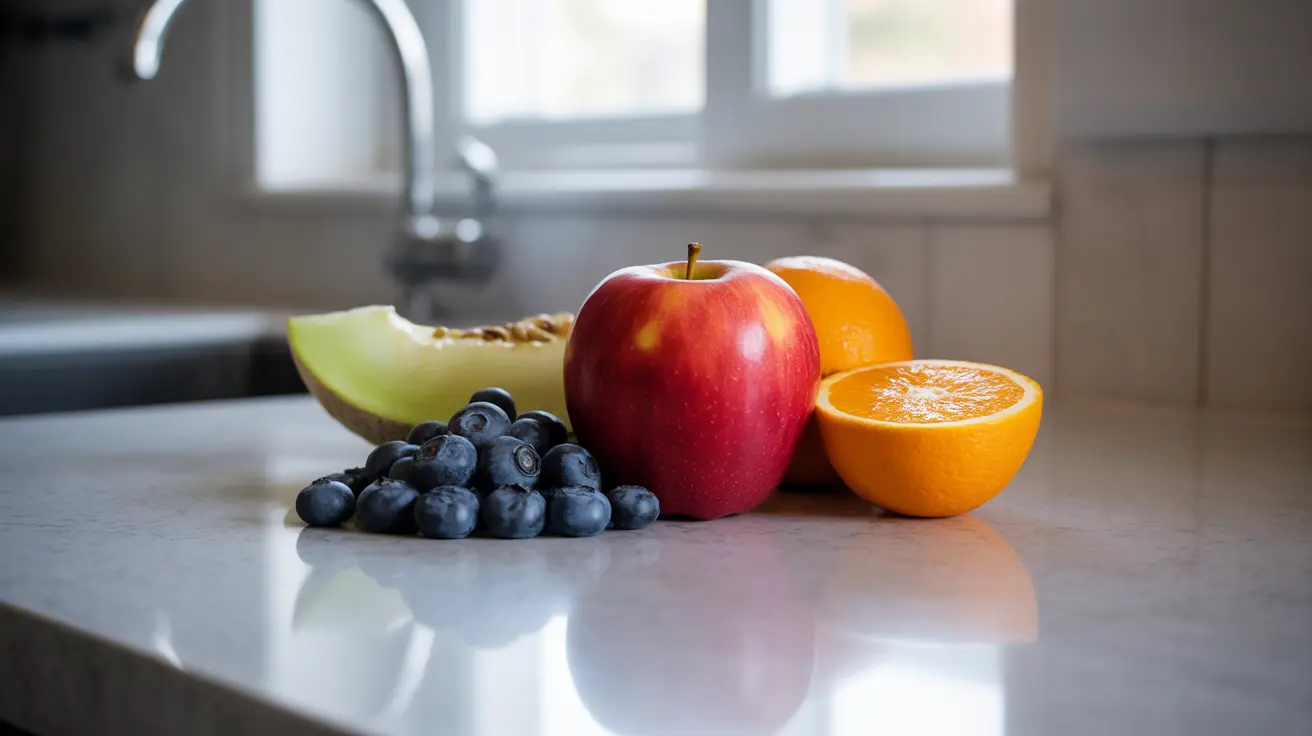Making smart dietary choices is crucial for maintaining heart health and managing conditions like high blood pressure. Understanding which fruits are naturally low in sodium can help you make better food choices while enjoying nature's sweet offerings. This comprehensive guide will help you navigate the world of low sodium fruits and their benefits for your health.
Understanding Sodium Content in Fruits
Most fresh fruits are naturally very low in sodium, making them excellent choices for those following a low-sodium diet. Fresh fruits typically contain less than 5 milligrams of sodium per serving, while providing essential vitamins, minerals, and fiber that support overall health.
Best Low Sodium Fruit Options
Fresh Fruits
These fresh fruits are excellent choices for a low-sodium diet:
- Apples (0-2 mg sodium per medium fruit)
- Berries (strawberries, blueberries, raspberries)
- Oranges and citrus fruits
- Bananas
- Pears
- Peaches
- Grapes
- Melons (watermelon, cantaloupe, honeydew)
Benefits Beyond Low Sodium
These fruits offer additional health benefits that make them especially valuable for heart health:
- High potassium content to help balance blood pressure
- Natural fiber for digestive health
- Antioxidants for cellular protection
- Natural sweetness without added sodium or sugars
Shopping for Low Sodium Fruits
Fresh vs. Packaged
When shopping for fruits, consider these guidelines:
- Choose fresh fruits whenever possible
- Look for "no salt added" labels on canned fruits
- Check nutrition labels for sodium content on frozen fruits
- Rinse canned fruits thoroughly to remove excess sodium
Storage Tips
Proper storage helps maintain freshness without the need for sodium-based preservatives:
- Keep most fruits in the refrigerator
- Store bananas and apples at room temperature
- Use airtight containers for cut fruits
- Freeze excess fruits for later use
Incorporating Low Sodium Fruits into Your Diet
Consider these creative ways to enjoy low sodium fruits:
- Add fresh berries to breakfast cereals or yogurt
- Pack whole fruits for convenient snacks
- Blend fruits into smoothies
- Use fruits as natural sweeteners in baking
- Create fruit-based desserts without added sodium
Frequently Asked Questions
What fruits are naturally low in sodium and good for heart health?
Most fresh fruits are naturally low in sodium, particularly berries, apples, citrus fruits, and melons. These fruits are excellent for heart health as they're rich in potassium, fiber, and antioxidants while containing minimal sodium.
How can I choose low sodium fruits when buying canned or packaged options?
Look for labels stating "no salt added" or "low sodium." Always check the nutrition facts panel, and rinse canned fruits thoroughly before consuming. Choose frozen fruits without added sauces or seasonings.
Why is a low sodium diet important for managing high blood pressure and kidney disease?
A low sodium diet helps regulate blood pressure and reduces strain on the kidneys. Excess sodium can cause fluid retention and increase blood pressure, while low sodium fruits can help maintain healthy blood pressure levels and support kidney function.
What are practical tips for reducing sodium intake while enjoying fresh fruits?
Choose fresh fruits over processed options, avoid fruits packed in syrup or salt-containing preservatives, and incorporate fresh fruits into meals and snacks. Prepare your own fruit-based desserts instead of buying pre-made versions.
Can dried fruits be included in a low sodium diet, and which ones are best?
Yes, unsweetened dried fruits can be included in a low sodium diet. The best options are naturally dried fruits without added salt or preservatives, such as raisins, dried apricots, and unsweetened dried cranberries. Check labels carefully, as some dried fruits may contain added sodium.




